Stephen Gosk & Ken McLauchlan - Meet MetalForming’s New Leadership - PODCAST TRANSCRIPTION
June 22, 2023 at 6:00 a.m.Editor's note: The following is the transcript of a live interview with MetalForming leaders, Stephen Gosk, president and CEO and Ken McLauchlan, VP of architectural sales. You can read the interview below or listen to the podcast.
Intro/Outro: Welcome to Roofing Road Trips with Heidi. Explore the roofing industry through the eyes of a long-term professional within the trade. Listen for insights, interviews, and exciting news in the roofing industry today.
Heidi J. Ellsworth: Hello and welcome to another Roofing Road Trips from Roofers Coffee Shop. This is Heidi Ellsworth and I am road tripping Southeast to go meet up with our friends at MetalForming. This is going to be a cool podcast. We're going to be seeing a lot about culture, about the metal industry, about machinery. Very exciting. So I am very happy to welcome and introduce Stephen Gosk, CEO of MetalForming, and Ken McLauchlan, who is the VP of Architectural Sales. Welcome, gentlemen.
Stephen Gosk: Morning.
Ken McLauchlan: Good morning. Good to be here.
Heidi J. Ellsworth: It's great to have you both on. So much is happening over there. I'm really excited to be able to share this out with our community, our industry. Before we get into all the good new stuff, let's start with introductions. Stephen, could you introduce yourself, tell us a little bit about you and MetalForming.
Stephen Gosk: Sure. Stephen Gosk and been with MetalForming now for about six months, actually came from outside the industry, have been in different stints in my career though, both with European manufacturers. Siemens for 20 plus years, ran a North American subsidiary for a Swiss company called Fischer Connectors, and most recently here with a utility fabricating company called Southern States. So quite a mix of exposure to some of the technology that goes into our suppliers equipment as well as working in the family type business, smaller business environment.
Heidi J. Ellsworth: Very cool. There's a lot of good stuff coming from all that experience. Ken, if you could introduce yourself, that would be great.
Ken McLauchlan: Good morning. Ken McLauchlan, I've been with MetalForming since January of this year, so rolling on four months, five months. Been in this magical industry for 32 years. It picked me a long time ago, I didn't pick it and never thought it was going to be that, but I spent about half of my career in a contracting base and the other portion is manufacturer side. It's been a very great career choice for me and I'm real excited to be on with you guys today.
Heidi J. Ellsworth: I'm thrilled to have you on. I know our paths have crossed many times.
Ken McLauchlan: Yes, ma'am.
Heidi J. Ellsworth: This is going to be great. I want to go back to METALCON last fall and, Stephen, that was the first time we met and you were on the sound stage at the live coffee conversations during METALCON. And you'd been there two weeks, so get us caught up. What's happened since then?
Stephen Gosk: Well I'd say first and foremost, I'm about six months smarter than I was back then and during that time, drank from the proverbial fire hose. It's been a lot to get my arms around and to begin to understand this business and industry. Fortunately we have people like Ken and this organization has people with over hundreds of years of experience in the industry and the space. I have a lot of good folks to lean on and to glean some of the historical as well as the go forward view of what we need to be working towards, between the METALCON, FABTECH, IRE in the spring, it's been some wonderful opportunities for me to visit those large trade shows, meet customers, be there with our suppliers, see our competitors, see people in the space and what they're doing. It's been a lot, but it's been a great opportunity to get my head around the industry and some of the focus we need to have as an organization.
Heidi J. Ellsworth: It's a great industry too.
Stephen Gosk: Absolutely. Particularly in this space, what I've been most impressed with is we go from some of the larger fabricators and major accounts, all the way down to the roofing contractor who wants to get into fabrication and it's really just a huge dichotomy of customer types, each with their own needs, each with their own requirements, what drives their decision making. So it's been fun to start to gain that exposure and experience.
Heidi J. Ellsworth: I know, since we started Metal Coffee Shop last summer, I have been drinking a little bit of the same fire hose, just making sure to learn everything. But on the Roofing side of it with Roofers Coffee Shop, I tell you, contractors love your machines. They love it. It's one of our most popular things on the site. But you have just recently put out, in fact it's on Roofers Coffee Shop and Metal Coffee Shop, a new press release on your leadership. Stephen, I would love for you to talk about that press release and what you have going with this great team.
Stephen Gosk: A mature company always needs to remember why it was born. MetalForming launched about 26 years ago now and it really with a focus on having top tier suppliers that we represent all the way back to the customers that we're serving. And we need to keep that focus and understand that. But as the business scales and we start to grow, if we want to be twice as big as we are today, then naturally things that worked back then not going to work in the future. I've assembled a team that I believe is just an ideal mix of people new to the company as well as people who've been here for many, many years, and then bringing in people like Ken that may not have been with this company for all those years but had been in the industry that long. And so we've had a lot of changes from everything from some of our functional areas, like HR and finance, all the way to the leadership and the architectural sales side.
Conversely though, we've got an Ops Manager who's been here for about 10 years, David Prokop, leading our precision sales side, has been here for over 10 years. A lot of names in the industry that are well respected, well known coming into the organization, blending the two together. But last but not least, Tandi Mckissick joining us as director of marketing. As I came into this business, I really felt we needed to focus on our market reach. So looking at just our sales organization, the structure, the number of people, but as importantly our marketing efforts and just leveraging digital marketing and doing some things differently as an organization to reach the numerous contractors that are out there in the space.
Heidi J. Ellsworth: It was a thing before COVID, but since COVID digital is where everyone is and it's part of our culture now. We love having you on Roofers Coffee Shop and Metal Coffee Shop, but I really have been intrigued as we have visited about your view on your leadership approach. It's evolved and you have some great, I think, thought leadership in that area. Stephen, talk a little bit about that evolving leadership approach and then I'd love to have Ken also talk about that too on what he's seeing.
Stephen Gosk: That's a great question. We're all [inaudible 00:07:15], the competitors are changing, the technology's changing, the suppliers are changing, the markets and the needs are changing. And so, like any other company, we've got to evolve along that path and be positioned to best serve those customers. And as I said, those customers range, it's from key accounts that may look at us, the large fabricators, and say, "You call us a key account. What does that mean for us? What are you doing special for us?" All the way down to that smaller contractor getting into fabrication that really is looking for the guidance, the direction, putting their trust in whose equipment they're buying, in that contractor in that case. That's a huge investment. It's a first foray into fabrication. I say, akin to someone's first time home buyer, it may not be the most expensive home that they buy, but at that time it's just a huge investment and I really gained an appreciation for that.
And so, part of really we're trying to evolve into here is make sure that we have a keen eye on the customer and extreme customer-centric approach. Everybody in this organization touches the customer in some form or fashion, making sure we have the right people, the right focus, the right incentives so that we start to evolve and really get back, as I said, to where this company started. And I'll be candid, I think in some ways we lost a little of that focus the last several years. And I say that based on some of the feedback and input we've received and our objective is to pivot and make sure we're right back on track to what made this company where it is today and where we want it to go in the future. But it's a fair comment. Like anything, it's a large change management challenge.
Heidi J. Ellsworth: The times keep changing, so you have to stay up with those times. And Ken, you've been in the industry for a long time. Just in talking to you before this podcast, I could tell you were pretty excited. What are you seeing with this new leadership team and the culture of this evolving leadership approach for MetalForming?
Ken McLauchlan: I think that the new management approach that we have is really customer-centric, which is key. Because the customer base is changing, and Stephen's hit on a lot of this, that it's a very diverse group of people that we work with. Our customer base is diverse, our employee base is diverse and where the market's going is diverse. 30 years ago you didn't have a roofing and sheet metal shop, you had a sheet metal fabricator and you had a roofing guy. And the roofing guy didn't do shingles and didn't do membrane and didn't do metal, he did one thing. And today those guys are becoming that person for that contractor.
So just like their companies are modifying and adapting to the market so do we. I think there's some challenges. The team that Stephen's put together is very unique and diverse. I think I would put it that way. We've had some very in depth discussions over the last three months and the great thing is we've all grown from it and we see different points of view. And at the trade shows we've made a point of talking to customer basis as we're walking through, the good, the bad and the ugly. We want to hear it all. We want to see what we have to do to be that partner for those customers. And I think that's key for where we're going in the future too, just not today.
Heidi J. Ellsworth: Building those long-term relationships, that's what this industry is all about. And I think that's true throughout the trades, and it's actually true throughout everything. We want good customer service, we want to build a relationship, we want to know somebody's there for us.
Stephen Gosk: I was going to say this industry is absolutely very incestuous. I couldn't be happier to have a guy like Ken, and I'd say, if anyone doesn't believe that we're on the right path, the fact he joined us with the level and years of experience that he has, and the fact that he's believing in this direction going forward is a big check mark for the organization, to have someone like that join us, along with the other veterans that are part of the team. It's very, very critical that we have someone with that level of experience that I can draw on because he knows just about anybody and everybody as we walk around some of the trade shows. So it's just a wonderful addition and a big buy-in to where we want to go.
Heidi J. Ellsworth: It's so awesome that that is your focus. And when you talk about relationships, I also understand you have new ownership and that's an important relationship, and also there's a little bit of trepidation out there in the industry when it comes around acquisitions and changes in ownership. Stephen, maybe you could talk about that a little bit.
Stephen Gosk: It would be quite candid from my view, we're very fortunate to have the private equity support that we have. The equity partners we're in involved with take a long term view at their portfolio companies. They make the investments into those companies to position them for the future. And for us, that's investments in people, it's investments in inventory, it's investments in our facility, all across the board. And I find that they're on board, they want to understand what's going to help us be successful and grow and they're very, very supportive of that. On the other side, anybody who's been involved with private equity, and this is my first stint, there's a rigor associated with private equity companies driving us from the reporting and the financial clarity and the business planning side very much to put a strategy in place and direction in place for the organization that we can all see and support and work from.
And so it's good for an organization like ours that really hadn't had to have that structure to start to have, again, some of the rigor in the reporting and the detailed information so that we can make good business decisions. Overall, it's been a very positive experience from my perspective and what they've been allowing us to do for the future.
Ken McLauchlan: I think the really important thing about our private equity is they want to participate. They've been at trade shows, they're here on a regular basis, they want to meet the customer base. As they're in the building, they're not trying to hide behind anything and they want us up and front and they're right there with us, which is a fun experience to have.
Heidi J. Ellsworth: That's cool.
Ken McLauchlan: You need some private equity and then they stand up and they say, "This is my name and this is what I do." And it's a fun part, you don't have to explain it when they want to be participating in the business by themselves.
Heidi J. Ellsworth: And then you're all as a team going forward. And that makes such a big difference.
Stephen Gosk: As Ken said, they roll up their sleeves and they're standing right beside us as we're trying to do some of these things and they want to understand the business so that they understand the requests that are coming their way and what we're looking to try to do.
Heidi J. Ellsworth: And one of the things you talk about in your press release and you've talked about in several different forums is that commitment to future innovation. And I would love to talk about that innovation because there is such a need. Things are changing so fast on the technology front across the board. Share a little bit about that. Ken, let's start with you, just what you see on innovation that we need in this industry.
Ken McLauchlan: Innovation over the last 30 plus years, I was thinking about this the other day, that what we were going to talk about and how we were going to get through different things and I was laughing. I was thinking about dot peen marking sheet metal. Anybody that's old sheet metal person knows what I'm talking about. Notching a dot and marking and trying to talk people into an auto folder, trying to talk them into doing some sort of a process in their office and they didn't get it. And now they're talking about full automation, to where we're making 30 feet at a time instead of making 10 feet at a time, it's all computer generated, it's all AutoCAD based. Applications where somebody can put in a program and you can basically force multiply what you're trying to accomplish solely by using the equipment that's available today from software to equipment to everything under the sun. It's just not about all of a sudden I'm taking out creating and freighting and everything else, it's, how do we let one person do more work?
Heidi J. Ellsworth: Well, the labor shortage, that's key.
Ken McLauchlan: It's the biggest thing. You can't talk to a roofing contractor, or contractor in general, or anywhere you go and not hear about labor shortages. That's a key part for any of these guys, all their business wants to grow as a company. Their goal is to grow it profitably. It's the hardest thing, is just adding people doesn't make you more profitable. It's really focusing on profitability and accountability within the company.
Heidi J. Ellsworth: I've been amazed, when I am at the trade shows and I sit there and just watch your machines, watch the MetalForming machines perform, they're amazing. But the technology that we're seeing coming from measurements, from drones, from across the board, going right into the machines and cutting precision pieces and systems has been, to me, just so much fun to watch. What do you see on that front?
Ken McLauchlan: I think we're going to see more and more movement towards automation in general. We're seeing it now where one location can send to four different, or five different, or 10 different fabrication facilities. Process management can be done very localized, but your production of material can be done in a regionalized market. Allows the customers better customer service, a better experience long term. And I think we're going to see more and more progression of that. Some of our partners have software systems that link into other programs that everything can be barcoded and numbered so you can scan it. And it's some more a part of a person trying to understand what the dimensions or what the piece was for the barcodes on and it tells you what you're supposed to do with it from that point. So to get in the role former side of the world, that's been around forever, but how do we increase speed and productivity not only in role forming but in changeover. Downtime is lost time, so how do we help you with that? There's only so many hours in a day.
Heidi J. Ellsworth: That all helps labor too.
Ken McLauchlan: Entirely. Entirely.
Heidi J. Ellsworth: You were also talking about the commitment of employee engagement. Stephen, what are you seeing? You've talked about this, you're very committed and passionate on this. Talk a little bit about that employee engagement focus.
Stephen Gosk: I think first and foremost, when you're an organization our size, every person in the company matters. Every person needs to be engaged in doing their role to the best of their ability. And so it is absolutely paramount that we have the right people on the bus, they use that phrase. We need the right people on the team, they need to be like-minded. If someone falls down, they're reaching the hand down to help them up and see how they can truly assist. For me, I think one of the great parts of being in my job is that I can have a say, at least going forward, on every person that joins and make sure that they're aligned. 15 minutes ago, we're interviewing a new field tech, and I'm literally interviewing with my team every new person joining the organization.
Because I want them to know the kind of company they're getting engaged in. The worst could be is, three months from now they say, "You know what? This wasn't what I thought it was going to be. It's really critical they understand where we're going as an organization and the kind of people we want as part of that team. As we go forward, as we add people, we need to make sure that we're doing for them what we need to as far as training and ramping them up and onboarding them and then properly incentivize them so that if the company's successful, they see the difference. And make sure that they fully understand, as I said earlier, that every person in the company touches the customer, every person can influence that. So we share, we do quarterly all employee meetings, we share those kind of stories, we make sure they understand the good and sometimes the bad, and what we need to do to get better and learn from that, and evolve, and continue to push ourselves to be better for the customer.
Heidi J. Ellsworth: At the end of the day, when employees are engaged, they're having fun with the customers, they're having fun with each other, and that's what you want in your life. You don't want to go somewhere you're dreading, you want something where you can engage with everyone. And so, I am really interested, and I know we already talked about it a little bit, but bringing together that employee engagement with the customer on centricity, really making that customer the focus of each employee, talk about that a little bit more.
Stephen Gosk: One of the big things I see going forward, and one of the investments we're making is into our showroom here. And so as those customers come and visit our facility and they're here to make sure that people get as much exposure to that as possible. I like to say, whether I answer the question, Ken answer the question or someone on our team answer provide that continued focus for everybody, that aligned in where we're going and how we want to get there, and there really shouldn't be any surprises, but I think that exposure of making sure that we have people in the organization exposed to the customer, again, whether it's here in our facility or people we have attend our trade shows with us, that they hear real world scenarios and they're not always good, but that that's the real world and we need to walk away from that and learn. And live it and say the last part is they need to see everybody from the senior management all the way down living what we preach.
Heidi J. Ellsworth: It is. And as a society we've really come to that, the really best companies are doing that, but I think they're also listening, and that's what I hear a lot from both of you, is that you are listening. Ken, what are you seeing and hearing from your customers? What are they looking for from you?
Ken McLauchlan: Today's markets change. We watched the interest rates go up, we watch all different things happen, and we see challenges within the market that are driven not only by material shortages, which we've dealt through the whole pandemic to this point, to where it became a common thing to say, "I can't get it for this reason." That's not acceptable anymore in most customers' basis, but they want an answer. So real service based has been very important for us. It's been a major focus for the first quarter and it'll continue to be a focus because the investment is one thing, but the customer wants to know that when they have an issue, they'll get it addressed, they'll have it looked after. How do they become more productive? People are looking for opportunities to figure out and they're not scared to make the investment. Even with some of the incentives going away in machinery today, people are saying, "How can I be more productive with not only my crews but with my time that I have?" So it becomes a very large part of their business.
And then how can I become diverse? As we watch the economy change, you're going to watch roofing companies and just construction companies in general have to be diverse. Market segments are slow, markets will change, and when they do, if they're not adapting, they're losing. The guys that are doing this well right now, you talk to them and their books of business are really good still, with lots of backlog that they're really happy with, it's just not fictitious backlog. And the people that aren't thinking diversity are struggling a little bit, trying to figure out how you transfer from one side to the other.
Heidi J. Ellsworth: All the reports and data that's coming out is showing the huge growth of metal. I mean the MRA, the Metal Roofing Alliance, just came out and I believe it was 17% market share for metal, and that's just except from 3% not that many years ago. And so the contractors are seeing this, but I really like what you said, Ken, can you switch from commercial to residential? Can you go from re-roof to new or other industries, other places where metal? We have a lot of metal siding and exteriors going on, take that a little bit further, what's some of your recommendations besides diversifying, but how do they do that?
Ken McLauchlan: And I think you just hit one of the major ones. Building envelope, when we talk about division seven has always been, we're going to talk about roofing primer edge, we're going to talk about standing seam metals, we're going to talk about shingle roofs and flashings and tiles. And that's transversed into the walls now, that you'll see exterior building where they want to have and whether it's a foam product that has some sort of a backer to it or whether it's thin skin and whether it's a rain screen or whether it's an actual weather type application. People are looking not only for longevity but for architectural appeal. Pardon me. So it's not the traditional look of the building, it's we can put our accent on the building as well, which has been a big challenge.
The other thing is just the product itself and its longevity for these people. When you look at, I think the average building in the United States, they say's supposed to last 30 years and you have products now in metal that you can have 35, 40, 50 year warranties depending on the manufacturer's key as well. And then the other part is interior. We see more and more people using metal on the interior, which I think all of us look and go, "I don't know if that makes sense, but it makes sense to a lot of people," because it gives them that architectural appeal and it's that opportunity. And then different products too whether it's painted or whether it's a natural product or whether it's a copper, a zinc or a Core 10 or whatever type of product that it has, it gives them that ability to use that as a different canvas, they change it, but still have one contractor.
Heidi J. Ellsworth: I'm pretty amazed at some of the paint that's coming out, that camouflage the patterns, the things that we're starting to see. Very cool stuff. I like that architectural design inside the house, especially inside restaurants and buildings. One of the things that I'd like to end on is, we're always talking about being customer-centric when it comes to the contractors, or the fabricators, or the sheet metal shops. But really the end users out there, the building owners, the homeowners, they are really looking for new and different, when it comes to architectural, performance, durability, energy savings. What are you seeing, and Stephen, maybe I'll start with you and then Ken, I'd like to hear both of you, but about being customer-centric, not just to your immediate customers, but to the end users also.
Stephen Gosk: I think I'd tie that back, Heidi, to the innovation question. As we see those end users require different things that's coming back to us from some of the requirements, the fabricators are needing from their machines. From the innovation standpoint, part of what we are challenged with is we've got to take that feedback back to our suppliers and influence their technology. And as I'd say, sometimes the challenge with European suppliers is it's easy to say no from 6,000 miles away, but it's really important that we emphasize for them where the market's going, what that end user requires and what they need to start thinking about in those machines from an innovation standpoint going forward. The other side of that is, oftentimes people think of innovation just in product innovation, but there's a lot of things we can innovate in how we reach the market or the tools we give a customer or the information and how we can convey information and bring them up to speed on delivery dates or just the status of an order.
There's a lot of things that we can invest in here that go beyond just product that in the end, if you think about that end customer with a project schedule and wanting to get their material on time, will help satisfy that end customer's questions and allow those projects to flow a lot better. Those are the kind of ideas we're kicking around here as to what would and could be most beneficial, not only to the company we're selling the machine to, but potentially what that end effect could be for their customer and make them more successful and valuable.
Heidi J. Ellsworth: I think that's brilliant. When you think about what's going on right now in Florida and the need for metal roofs and performance with all the storms and everything that's happening, you need to save time. You need to be able to get those jobs there on time and get them done. That's a huge demand.
Ken McLauchlan: You hit on a great part earlier too, when we talked about market increase, I remember a long time ago, when we were talking about decimal points of increase and we were all waving our hands in the air like we just scored a touchdown in the Super Bowl, that it was 0.8 and went to 0.93 and we were ecstatic because we were moving the needle. I think part of the reason we're getting that growth and the growth you just represented too as well is because the metal industry's really listened well to the consumer. And whether it's Florida or Texas and coastal areas with storms and them needing high wind ratings or durability in salt spray areas or whatever else might be, or the other one we've avoided, but especially where you're from and where I came from in the west where we've got forest fires, and you talk about every year more and more problems and then trying to figure out how do you make this accessible to the people that are all of those markets.
I think our success as a company for 25 years up to this point has been based on innovation. And by innovation I meant going out and finding the right product, and I think now we're at the point that we're helping design the right product. As a team, we're going to our manufacturing and saying, "You know what? We've done it this way for a long time and that's great, but here's where we need to go next. This is what we need to increase." Whether it's speed or productivity or availability, all those things we're looking at as a management team and as a company as a whole.
The other really positive thing I want to touch, and you hit on this, but one of the best experiences I had in the last three months is one of the machines we just placed, one of our customers came up and said, "Those are the same people I saw at the show." And that's what we want people to understand. There's no ivory tower. You open the door and you go right or left, you'll get Steve's office, you go to the right you get my office, we're here to help. But the guys that are at the trade show were all here too. We're not trying to hide behind any gauntlet, we're not trying to sit up and look back, we're trying to say, "Tell us what your problems are. Give us an opportunity to try to help you and let's try to work through it together."
Heidi J. Ellsworth: I love it. I love it. Steve?
Stephen Gosk: You hear one of my favorite phrases for this organization it's, "We are listening." And again, I think some ways we got away from some of that and we need to get back to hearing what the customers need, what's most beneficial, what we can do to serve them, recognize how important these investments are for them, big or small, and make sure that we're adding value as an organization between the supplier and the customer, and understand what that value really is and needs to be and then execute. We'll never be perfect, but when we're not, we need to understand what went wrong and what we can do in the future to avoid it.
We're committed to drive that forward in this industry, which is a great industry. I talk in terms of headwinds and tailwinds and certainly interest rates and the economy in general and all that we hear about in the news could be a headwind, but at the same time where we're going, the transition of more metal being used and applications to being more efficient and adding productivity and having labor savings and the rest, those are tailwinds. And if they're going to be a question of which one overcome, I'm pretty bullish though, as we go forward with this industry and what we provide as an organization,
Heidi J. Ellsworth: We've been hearing the same things. I think everyone's feeling like, "There's a need, let's serve it." Gentlemen, thank you so much. This has just been an excellent podcast, and we've already talked, we're going to have you back in a little while and we're going to keep talking about some of these topics because I'm really excited. I want to talk more about architectural metal, talking about where the industry's going, some of these innovation new products. Thank you so much for being on today, and I look forward to our next chat too.
Stephen Gosk: Great. Thank you.
Ken McLauchlan: All righty, thank you. Have a great day.
Heidi J. Ellsworth: Thank you. And thank you all for listening. This is the kind of information that we know really is making a difference in people's businesses. So be sure to check out the MetalForming directory on Roofers Coffee Shop and Metal Coffee Shop. You can find the directory, the information, all kinds of cool machinery, there is a lot of lot happening on this site, along with a lot of articles and future podcasts. Also, check out all of our podcasts under the read listen watch navigation under podcasts and Roofing Road Trips. Or on your favorite podcast channel, be sure to subscribe and set those notifications so you don't miss a single episode. And we'll be seeing you next time on Roofing Road Trips.
Intro/Outro: Make sure to subscribe to our channel and leave a review. Thanks for listening. This has been Roofing Road Trips with Heidi from the rooferscoffeeshop.com.
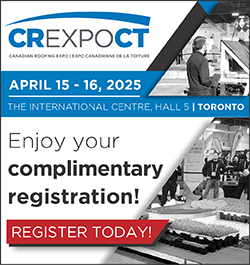

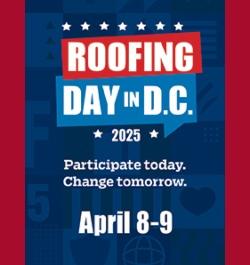
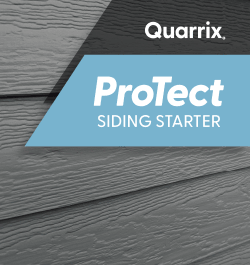
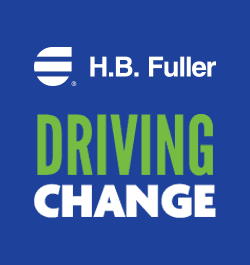



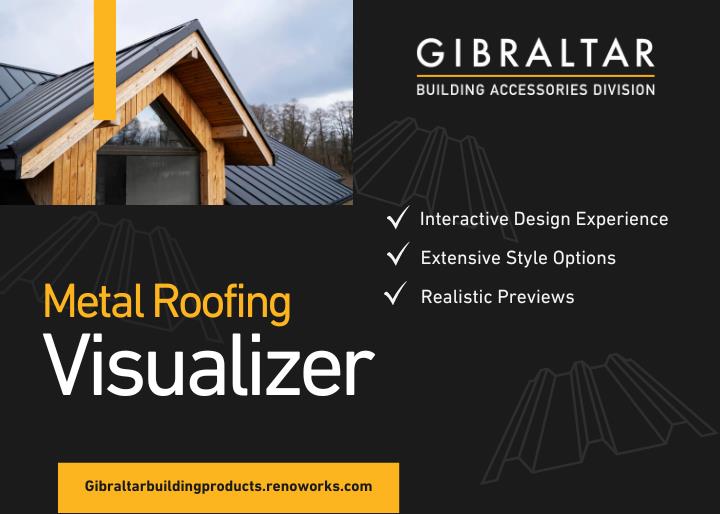









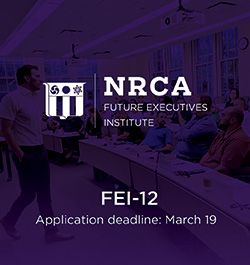



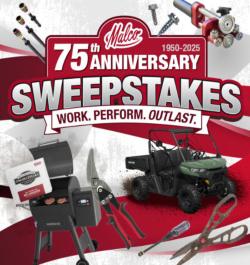
Comments
Leave a Reply
Have an account? Login to leave a comment!
Sign In